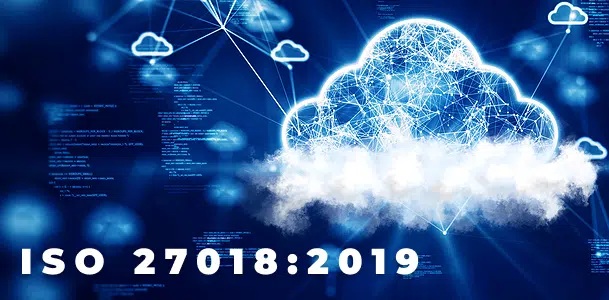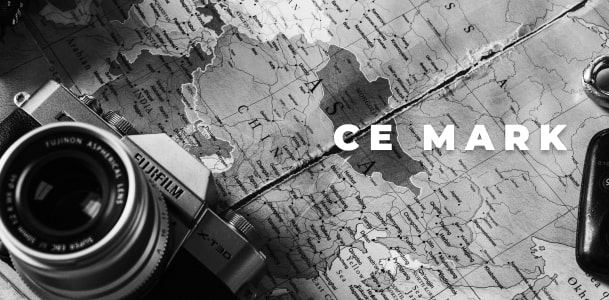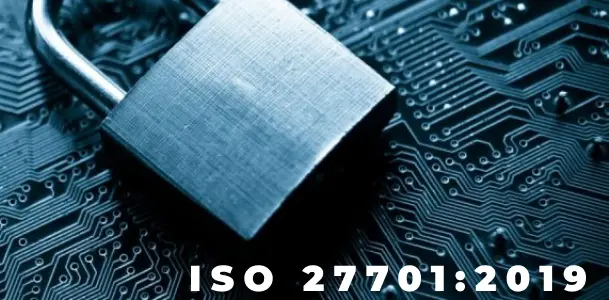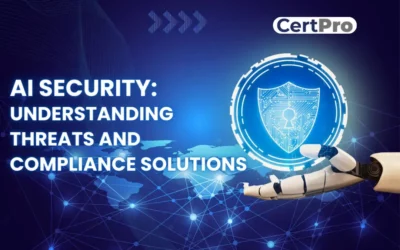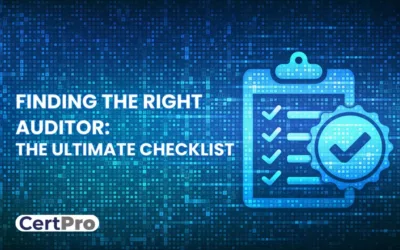NETHERLANDS
ISO CERTIFICATION IN NETHERLANDS
The Kingdom of the Netherlands, also referred to as the Netherlands, is a large and diversified nation that needs ISO certification in order to comply with international standards. The country is made up of the mainland and a number of islands, as well as numerous provinces and territories. The Hague serves as the government’s seat, whereas Amsterdam is the largest city. As a result, big Dutch cities like Rotterdam, Utrecht, and Eindhoven frequently look for ISO consultants in the country and work toward ISO certification.
Being the 29th largest nation in the world, the Netherlands prioritizes strategic goals and makes huge defense-related investments; hence, ISO certification is essential. The Netherlands has one of the best economies in the world, with a low poverty rate, a strong market economy, and a sizable GDP. It is noteworthy for having continuously upheld a high standard of living, which has helped it rank among the richest countries.
The Netherlands, a nation in Europe, has seen steady economic growth, which emphasizes the value of ISO certification in the nation. Its global competitiveness in technology, high-value commodities, insurance, and financial services makes it a desirable place to invest. Important industries like shipping and horticulture strengthen the Netherlands position, demonstrating the country’s dedication to upholding international standards by obtaining ISO certification.
WHY ISO CERTIFICATION IN NETHERLANDS?
Obtaining ISO certification is crucial for Dutch companies looking to improve their operational effectiveness, project credibility, and guarantee excellence. ISO certification demonstrates a strong commitment to upholding high standards across various industries, emphasizing a dedication to excellence. Specifically, the ISO 9001 certification is essential for emphasizing quality management and encouraging the development of dependable, customer-focused goods and services, which greatly empowers Dutch firms. Not less noteworthy is the ISO 14001 certification, which deals with environmental management—an important factor for a nation committed to sustainable development in the midst of fast industrial growth. As technology advances in the Netherlands, ISO certification—specifically, ISO 27001—becomes more crucial for protecting sensitive information in the changing digital environment.
These certificates are very important in the Dutch market since they boost consumer confidence and give companies a competitive advantage abroad. ISO certification is a symbol of strict adherence to standards, which lowers waste and increases product dependability. It also simplifies processes, increases productivity, and cuts expenses.
Many ISO certification bodies in the Netherlands provide assessment, advice, and certification services to help companies successfully navigate the certification process. In the end, ISO certification in the Netherlands enables companies to build strong frameworks, conform to international best practices, and improve the status of the country by promoting quality, sustainability, and security.
UNDERSTANDING ISO CERTIFICATION IN NETHERLANDS
The ISO 9001 accreditation serves as evidence that a Dutch company is dedicated to delivering reliable and exceptional products and services. Concerning environmental responsibility, the ISO 14001 standard aligns with the Netherlands commitment to sustainable industrial development. Safeguarding sensitive data is the primary focus of ISO 27001, a particularly relevant aspect given the Netherlands ongoing digital transformation journey. ISO certification
Related Links
SOC 2 in Netherlands
ISO 27701 in Netherlands
GDPR in Netherlands
ISO 27018 in Netherlands
HIPAA in Netherlands
CCPA in Netherlands
PIPEDA in Netherlands
ISO 17025 in Netherlands
ISO 13485 in Netherlands
CE Mark in Netherlands
GDP in Netherlands
GLP in Netherlands
ISO 9001 in Netherlands
ISO 14001 in Netherlands
ISO 45001 in Netherlands
ISO 22000 in Netherlands
HACCP in Netherlands
ISO 22301 in Netherlands
ISO 21001 in Netherlands
ISO 41001 in Netherlands
ISO 20000-1 in Netherlands
significantly benefits the diverse Dutch market by enhancing consumer confidence and enabling firms to compete globally. Beyond showcasing compliance with stringent standards, ISO certification enhances product reliability through streamlined processes, waste reduction, and the elimination of inefficiencies.
In essence, the Netherlands ISO certification empowers companies to establish robust frameworks in line with global best practices. Businesses prioritizing quality, sustainability, and security not only enhance their own profitability but also contribute to the international reputation of the Netherlands. The International Organization for Standardization (ISO) officially recognizes ISO certification as evidence that a company’s management system, procedures, products, or services meet predetermined standards. ISO is a globally recognized, independent organization that sets standards to ensure quality, safety, and efficiency across various industries. Because ISO standards enjoy widespread acceptance, Dutch businesses can confidently access global markets. Companies with ISO certification often gain a competitive edge by showcasing their commitment to quality and ongoing improvement. The Netherlands emphasis on sustainability aligns with ISO 14001 certification, addressing environmental management. ISO standards typically prioritize customer requirements, enhancing retention and satisfaction. For Dutch suppliers involved in international supply chains, ISO certification holds significant importance. Continuous improvement, a fundamental aspect of ISO certification, helps Dutch businesses stay competitive by streamlining operations. Ultimately, ISO certification fosters trust with partners and customers, showcasing adherence to international quality standards.

THE FOLLOWING ARE ESSENTIAL STEPS IN THE NETHERLANDS ISO CERTIFICATION PROCESS:
Preparation and Awareness: The initial stage involves gaining a comprehension of the particular ISO standard relevant to your industry and business objectives. Acquire knowledge about the specifications, advantages, and implementation methods associated with the standard.
Planning: An all-encompassing plan should incorporate the necessary steps to align your processes with the ISO standard. Assign responsibilities and formulate an implementation schedule.
Documentation: Ensure compliance with the ISO standard by generating or revising pertinent documentation, including policies, processes, work instructions, and records.
Implementation: Follow the procedures and guidelines that have been formally recorded for your organization as a whole. To guarantee correct implementation, make the required modifications and keep a careful eye on things.
Internal Audit: To assess the effectiveness of the adopted processes and identify any non-conformities, conduct an internal audit. Address these issues and implement the necessary changes.
Management Review: Perform a management review to assess the effectiveness, progress, and relevance of the ISO management system implementation. Identify areas that may require improvement or modification.
Certification Body Selection: To carry out the external audit, select a reputable certifying body. The certifying organization will examine your documentation, processes, and implementation to evaluate your readiness for certification.
Stage 1 Audit (Document Review): The certification body takes the initial step of reviewing your processes and documentation to ensure alignment with ISO standards.
Stage 2 Audit (On-Site Audit): The certifying agency conducts an on-site audit to verify the implementation of your ISO management system. They assess the extent to which your procedures align with the requirements of the standard.
Certification Decision: Based on the audit findings, the certifying authority determines whether to issue certification. If your organization meets the standard’s standards, you’ll receive an ISO certificate.
Surveillance Audits: Periodically, the certification body conducts surveillance audits to verify ongoing adherence to the ISO standard. Typically, these audits occur annually.
Process requirements include following the rules set forth by the certification organization of your choice and working closely with them.
POPULAR ISO STANDARDS IN NETHERLANDS
ISO Standards, including ISO 9001, ISO 45001, ISO 27001, ISO 22000, ISO 14001, ISO 17025, ISO 13485, and more, serve as crucial benchmarks for quality, safety, and efficiency across various industries.
In the Netherlands, the role of an ISO certification body is significant in propagating international standard concepts globally. This entails fostering adherence to established standards such as ISO 9001 for quality management, ISO 45001 for occupational health and safety, ISO 27001 for information security, ISO 22000 for food safety, ISO 14001 for environmental management, ISO 17025 for laboratory testing and calibration, ISO 13485 for medical devices, and others.
The ISO certification body in the Netherlands plays a pivotal role in elevating the standards of businesses and organizations by ensuring that they align with these internationally recognized benchmarks. This not only enhances the overall quality and safety of products and services but also facilitates global trade by establishing a common ground for compliance.
By actively engaging with an ISO certification body, businesses in the Netherlands can contribute to the dissemination of best practices, uphold the reputation of their products and services, and demonstrate a commitment to excellence on the international stage. This collaborative effort between businesses and ISO certification bodies is essential in fostering a culture of continuous improvement and adherence to global standards across nations worldwide.
BENEFITS OF ISO CERTIFICATION IN NETHERLANDS
In the Netherlands, ISO certification is essential for guaranteeing that goods and services fulfill international quality standards, improving client happiness, and giving companies a competitive edge. Following ISO standards lowers the chance of business failure while also ensuring that processes are implemented correctly. The process of obtaining ISO certification has the potential to greatly enhance the expansion, legitimacy, and operational efficiency of Dutch enterprises.
First and foremost, ISO certification improves a business’s standing in the marketplace by demonstrating its adherence to global standards, which gives customers more assurance. Customer retention and loyalty are raised as a result of this enhanced credibility.
ISO certification in Netherlands reduces trade barriers, simplifies access to international markets, and establishes a quality benchmark, facilitating entry into global markets. This is particularly advantageous for Dutch companies seeking global expansion and pursuing international business opportunities. Additionally, Dutch companies holding ISO certification gain a competitive edge over their counterparts, signaling their dedication to quality, efficiency, and continuous improvement. This certification sets them apart, attracting potential clients and business partners.
- Global Recognition: The international acknowledgment of ISO certification proves to be a valuable asset for Dutch businesses, streamlining international trade and opening up new avenues for market expansion.
- Enhanced Credibility: It enhances the reputation and trust of investors, partners, and clients both locally and globally.
- Competitive Advantage: Companies that have obtained their ISO certification showcase their dedication to quality and excellence, providing them with an advantage over competitors.
- Operational Efficiency: Improved overall operational effectiveness is an outcome of process enhancements.
- Supply Chain Integration: Collaborating with international partners becomes feasible as ISO accreditation is a requirement for many global supply networks.
- Market standing: ISO certification elevates a company’s reputation in the marketplace, drawing in more customers and business opportunities.
- Legal and Regulatory Compliance: ISO certification simplifies adherence to local, state, federal, and international laws.
- Investor Confidence: It enhances investor confidence by demonstrating a commitment to best practices.
ISO certification in Netherlands equips businesses to flourish in a competitive landscape, establish credibility upon entering international markets, uphold ethical and sustainable business practices, and consistently refine their operations for enduring, stable success.
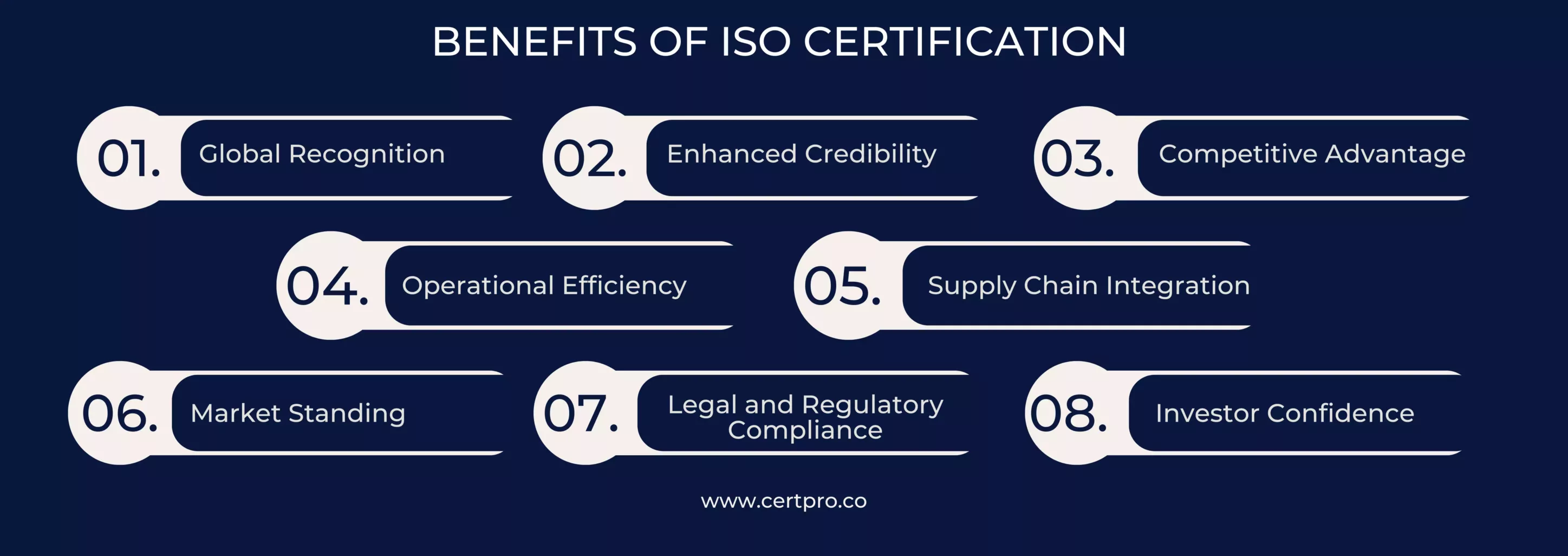
ISO CERTIFICATION BODIES IN NETHERLANDS
Numerous organizations in the Netherlands are giving precedence to ISO 27001 certification to secure their information assets in the digital realm. The country boasts reputable entities that deliver outstanding certification and consulting services, providing comprehensive solutions for establishing and managing ISO-compliant Information Security Management Systems (ISMS). Choosing ISO 27001 certification demonstrates a dedication to data security, bolsters customer trust, and acquires a competitive advantage. The following list delves into the top ISO 27001 certification companies in the Netherlands, emphasizing their expertise, customer support, and commitment to guiding businesses through the certification process.
RvA: RvA stands for the Raad voor Accreditatie, which translates to the Dutch Accreditation Council. The RvA is the national accreditation body for the Netherlands. It plays a crucial role in accrediting organizations and conformity assessment bodies, ensuring that they meet specific standards and adhere to established criteria. The RvA’s accreditation is recognized both nationally and internationally, contributing to the reliability and credibility of certified entities in the Dutch market.
Factocert: Factocert is a company that specializes in providing certification and consulting services. They offer expertise in assisting businesses with the certification process, ensuring compliance with various standards, and enhancing overall quality and efficiency. The company may focus on a range of certifications, including ISO standards, to help organizations meet international benchmarks and improve their management systems. Please note that specific details about Factocert’s services and certifications may be subject to change, and it’s advisable to refer to their official website or contact them directly for the latest information.
Veave: Veave is a company that specializes in providing certification and consulting services to businesses. They are likely to assist organizations in achieving various certifications, including ISO standards, to ensure compliance with international benchmarks and improve overall management systems. Specific details about Veave’s services, certifications, and areas of expertise may vary, so it is recommended to refer to their official website or contact them directly for the most up-to-date information.
Certvalue: Certvalue is a company that specializes in providing certification and consulting services to businesses. They likely assist organizations in achieving various certifications, including ISO standards, to ensure compliance with international benchmarks and enhance overall management systems. Specific details about Certvalue’s services, certifications, and areas of expertise may vary, so it is recommended to refer to their official website or contact them directly for the most up-to-date information.
Siscertifications: SIS Certifications is a company that likely specializes in providing certification and consulting services to businesses. They may assist organizations in achieving various certifications, including ISO standards, to ensure compliance with international benchmarks and enhance overall management systems. Please note that specific details about SIS Certifications’ services, certifications, and areas of expertise may vary, so it is recommended to refer to their official website or contact them directly for the most up-to-date information.
INDUSTRIES THAT BENEFIT FROM ISO CERTIFICATION IN NETHERLANDS
Companies in the Netherlands are increasingly recognizing the significance of ISO certification for their success, realizing the multitude of advantages that can significantly impact various industries in the country. These certifications represent a profound commitment to quality, security, and sustainability; they go beyond mere symbols. ISO 9001 accreditation drives the manufacturing sector, leading to heightened operational efficiency and improved product quality, fostering a continuous improvement mindset. Apart from enhancing customer satisfaction, this outcome provides companies with a robust foundation in highly competitive markets where reliability is paramount.
In today’s data-centric world, ISO 27001 certification has become crucial for the IT industry, serving as a bulwark that strengthens risk management and data security procedures. Beyond harnessing the technical innovations in the Netherlands, this certification safeguards sensitive data, essential for gaining client trust and ensuring overall business success. Similarly, ISO/TS 16949 standards play a pivotal role in the automotive sector, ensuring the production of safe and reliable vehicles. This reinforces the Netherlands position as a leading manufacturer of quality automobiles globally, adhering to stringent quality standards and regulations.
Beyond industry-specific impacts, these certifications resonate through society, fostering more ecologically friendly and sustainable construction practices. Additionally, they contribute to a greener, healthier, and more prosperous Netherlands by elevating healthcare standards, improving educational institutions, and disseminating eco-friendly methodologies across various sectors. In this context, seeking guidance from ISO consultants in the Netherlands becomes imperative, especially for specialized certifications such as ISO 27001 certification in the Netherlands, SOC 2 certification in the Netherlands, GDPR certification in the Netherlands, and HIPAA certification in the Netherlands. Their expertise ensures a seamless integration of these standards, strengthening businesses and industries alike in their pursuit of excellence and compliance.
FAQ
What is ISO certification, and why is it important in the Netherlands?
ISO certification in Netherlands signifies adherence to international standards, which is crucial for operational efficiency, quality assurance, and gaining trust in various industries. It ensures businesses meet global benchmarks.
How can a company in the Netherlands obtain ISO certification?
To achieve ISO certification in Netherlands, companies must undergo processes like certification preparation, application of ISO standards, internal audits, selection of a certification body, and external audits.
What are the essential steps in the ISO certification process in the Netherlands?
The ISO certification process involves preparation, planning, documentation, implementation, internal audit, management review, certification body selection, document review, on-site audit, certification decision, and surveillance audits.
Why is ISO 27001 certification crucial for the IT industry in the Netherlands?
ISO 27001 certification in the Netherlands strengthens risk management, data security, and overall success in the digital landscape. It safeguards sensitive data, which is crucial for client trust and business prosperity.
How does ISO certification benefit businesses in the Netherlands?
ISO certification enhances a business’s credibility, reduces trade barriers, boosts consumer confidence, and provides a competitive advantage globally. It symbolizes adherence to strict standards, improving product reliability, and cutting expenses.
AI SECURITY: UNDERSTANDING THREATS AND COMPLIANCE SOLUTIONS
Artificial Intelligence continues to grow and become more relevant in workplaces. Customers widely use it to handle and market products. Organizations are desperately using AI for their businesses and ensuring that the AI systems comply with the new rules and...
FINDING THE RIGHT AUDITOR: THE ULTIMATE CHECKLIST
Selecting an auditor to implement industry-specific rules and regulations is vital. The choice can influence the company’s growth and financial health. Therefore, choosing the right auditor offers valuable insights and ensures compliance and economic stability. You...
HOW DOES THE NIST CYBERSECURITY FRAMEWORK FUNCTION, AND WHY IS IT IMPORTANT?
Emerging cyber threats make cybersecurity an essential consideration for organizations handling and managing data. In this regard, the NIST cybersecurity framework applies to improving your cybersecurity program. It is a set of guidelines that helps improve your...



